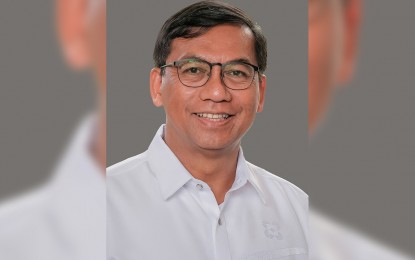
Department of Science and Technology (DOST) Secretary Renato Solidum Jr. Has highlighted the importance of science, technology and innovation (STI) in “the development of the country’s national wealth.”
During the opening of the 7th National Research and Development Conference in Pasay City, Solidum said that since the Covid-19 pandemic broke out, “innovation has been equated with progress.”
“Indeed, we need to invest in innovation today to ensure our country’s post-crisis growth. Our economy, to be prosperous, needs to produce greater output than input, and we must have the speed and capacity to shift to the changing demands of the market,” he stressed.
Solidum said DOST has been investing in health innovations that could provide solutions amid the Covid-19 pandemic which is why their agency has assisted its spin-off company, the Manila Healthtek Inc. to make molecular biotechnology affordable to Filipinos. The company has developed a Covid-19 detection kit.
Philippine Council for Health Research and Development (PCHRD) executive director Jaime Montoya echoed Solidum’s stance, saying they believe that investing in diagnostics is crucial in developing an effective and efficient healthcare system.
Solidum also shared that through the country’s Tuklas Lunas program, funding for drug discovery and development was significantly increased, and more regions and institutions have been provided with funding assistance.
He said other innovations the DOST has been supporting are those that back local firms, especially the micro, small, and medium enterprises (MSMEs).
“According to Philippine Statistics Authority data in 2021, more than 1.8 million establishments were in operation in the coubtry, 95% of which or about 977,670 are MSMEs,” he noted.
The DOST Secretary also pointed out that given the vastness of the country’s natural resources, especially mineral reserves and iron ore, support must be given to local companies. DOST has been investing in testing facilities to help small companies be more competitive and be able to export, he added.
“The investments, however, are not enough. For example, the steel industry and construction companies are complaining that the steel testing turnaround time is too long. Thus expanded testing capacities at MIRDC (Metals Industry Research and Development Center) and other laboratories are needed,” he stressed.
To support steel and manufacturing industries, the DOST has created facilities to support the Advanced Device and Materials Testing Laboratory, the national testing facility that houses advanced analytical instruments for failure analysis and materials characterization.
Solidum said DOST has been focusing on activities that support economic development and job creation, as well as wealth protection through climate and disaster resilience.
He said DOST’s programs also highlight well-being through health, education, and access to water and energy.